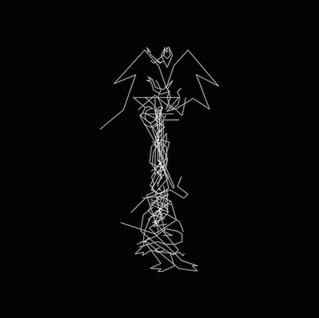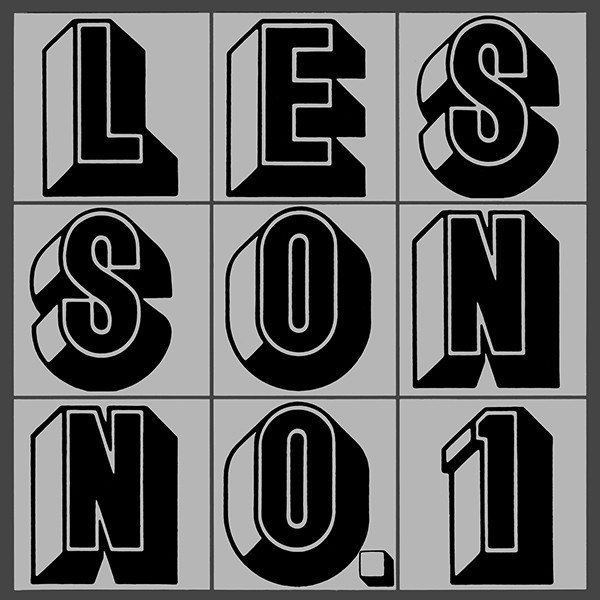 Though the comparison might be a stretch, lately I have been thinking of the musicians Oneohtrix Point Never, otherwise known as Daniel Lopatin, and the avant-garde guitar composer Glenn Branca together. Part of this is purely due to chance: when writing this review, 0PN’s Garden of Delete and Branca’s 1980 EP Lesson No. 1 occupied the number one and two spots, respectively in my “Recently Added” iTunes playlist, so it just happened that while I was writing and listening to 0PN, just as Garden of Delete ended on “No Good,” Branca’s “Lesson No. 1 for Electric Guitar” started, which wasn’t as jarring as one might think, given both artists’ stated interest in creating textures. Whereas Branca uses whole armies of guitarists to create layered, at times droning pieces, Lopatin’s work—from his earliest release on No Fun, 2007’s Betrayed in the Octogan, to his Warp records R Plus Seven and now Garden of Delete—has drawn on everything from fusion, new wave, video games, and ambient to create his textures.
Though the comparison might be a stretch, lately I have been thinking of the musicians Oneohtrix Point Never, otherwise known as Daniel Lopatin, and the avant-garde guitar composer Glenn Branca together. Part of this is purely due to chance: when writing this review, 0PN’s Garden of Delete and Branca’s 1980 EP Lesson No. 1 occupied the number one and two spots, respectively in my “Recently Added” iTunes playlist, so it just happened that while I was writing and listening to 0PN, just as Garden of Delete ended on “No Good,” Branca’s “Lesson No. 1 for Electric Guitar” started, which wasn’t as jarring as one might think, given both artists’ stated interest in creating textures. Whereas Branca uses whole armies of guitarists to create layered, at times droning pieces, Lopatin’s work—from his earliest release on No Fun, 2007’s Betrayed in the Octogan, to his Warp records R Plus Seven and now Garden of Delete—has drawn on everything from fusion, new wave, video games, and ambient to create his textures.
I’ve also been thinking of Lopatin and Branca together because they remind me of one another aesthetically. For example, both have been the subjects of wide-eyed, scruffy photographs in which they stare directly into the camera. To wit. Also because their music, while being composed for and performed on rather different instruments, is similar in important ways. For example, many of Branca’s compositions—despite their dissonance, reliance on repetition, use of distortion, and sheer caterwauling nature—rock. Likewise, much of 0PN’s catalog, of which Garden of Delete is now the most obvious example, jams in a very head-nodding way, until the jarring abstraction that is the foundation of the 0PN project takes over.
Take, for example, the first single from Garden of Delete, “I Bite Through It.” If someone, ideally someone with zero prior knowledge of 0PN’s work, were to stop listening to that track after the first 1:02, one would be forgiven for thinking it was simply the beginning of a particularly twitchy EDM track; the first minute of “I Bite Through It” really does sound as if a Skrillex-esque beat is about to drop and then Party! and bouncing and everyone is making out on E.
But, no, instead 0PN treats his listeners to about twenty seconds of jackhammering before abruptly moving into what sounds like free jazz guitar before moving back into the pre-beat EDM setup leitmotif, which is comprised, more or less, of four repeated notes. And then the song ends.
Moreover, the track immediately following “I Bite Through It,” the mysteriously titled “Freaky Eyes,” starts out like a horror movie, with a drone that morphs into an organ, that eventually becomes a wall of sound; and then the song shifts, nearly comes to a complete stop at about three minutes in, then redirects, briefly, to what sounds like a John Carpenter movie jam from another universe, until, finally, the song regains its initial menace, with a drawn-out vocoder interlude that leads its listener right back to the droning, cinematic place the song began in.
Maybe this is a product of my being part of a generation raised on Nintendo and television, but I can’t help but think of 0PN’s music as being anything other than cinematic; his albums all sound like they were made to be soundtracks. Which is not to say that they are missing the pieces that the film can supply—not at all. Lopatin’s music simply defies songwriting rules in ways that make a lot of sense when said disjointed, slightly uncomfortable music is accompanied by, say, footage of people shooting at each other in slow motion. And Lo! Lopatin has contributed to the scores of several movies, the latest of which is Partisan, starring the French actor Vincent Cassel, about an assassin-child raised in a “hidden paradise.” Ahem. Remind anyone of Hanna (which soundtrack the Chemical Brothers composed)?
But to backtrack a bit, to say that 0PN’s music is cinematic insofar as it sounds like it should accompany a film does it an injustice. Rather, 0PN is cinematic in the sense of cinematic’s etymological root: “cinema” comes from the French “cinéma,” which was a neologism based ultimately on the Ancient Greek κίνημα, for “movement.” 0PN’s music and Garden of Delete are marked by frequent, pleasurably surprising, restless movement. For example, “Mutant Standard,” the long track that serves as the album’s midpoint, is characterized by a restless beat that is punctuated by periods of quiet, which are in turn followed by ever-more-complicated layering of sounds, and then halfway through the video game-influenced sounds make their appearance, and on and on. 0PN’s work defies easy description.

Which brings us back to Branca. Though I am most familiar with his work from the early 80s, Branca’s work is similarly restive, albeit in a rather different way. Songs like Branca’s famous “The Spectacular Commodity,” from The Ascension, build and build and build, rarely ever landing on a theme on which to rest. They also tend to get progressively louder, as Branca makes great use of volume as a compositional tool. But whereas Branca’s work often builds (I think of it as being driving), 0PN’s jumps. And in so doing teaches how to listen to his work, to expect the unexpected and all that. After all, life is full of surprises.
…
Kevin O’Rourke lives in Seattle, where he works at the Institute for Health Metrics and Evaluation and edits the critical site The Hairsplitter. His first book, the essay collection As If Seen at an Angle, is forthcoming from Tinderbox Editions.


